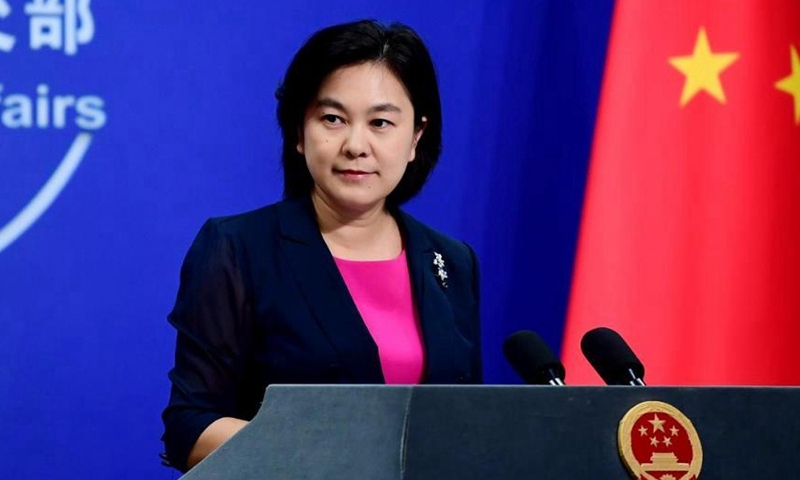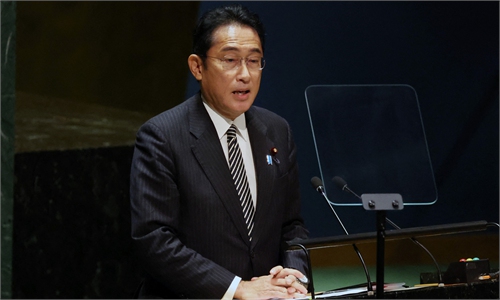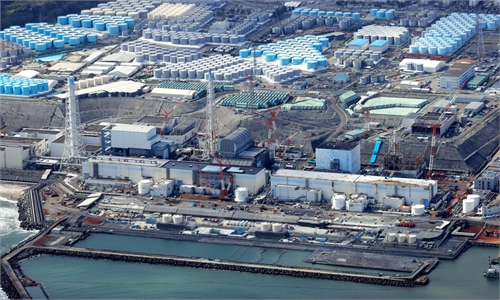Chinese FM reiterates strong opposition against Japan's dumping of nuclear-contaminated water ahead of facility construction

Hua Chunying File photo:CGTN
The Chinese Foreign Ministry on Wednesday reiterated its strong concern and opposition on the one-sided decision made by the Japanese government on releasing nuclear-contaminated water from the Fukushima nuclear power plant into the sea as the construction of dumping facilities are reported to begin on Thursday.
According to Kyodo News, Tokyo Electric Power Company said on Wednesday that it will on Thursday start to build undersea tunnels and other facilities to discharge treated water from the Fukushima nuclear plant into the ocean.
Chinese Foreign Ministry spokesperson Hua Chunying restated China's criticism of Japan's extremely irresponsible act of arbitrarily dumping nuclear-contaminated water when asked to comment on Japanese Prime Minister Fumio Kishida's remarks at the Review Conference of the Parties to the Treaty on the Non-Proliferation of Nuclear Weapons (NPT).
Japan will closely work with the international community to promote its effort in a transparent way in accordance with domestic and international security standard, said Kishida at the conference.
Fu Cong, Director General of the Arms Control Department at the Chinese Foreign Ministry, who led the Chinese delegation at the meeting, said that the Japanese government should seriously respond to the legitimate concerns from the neighboring countries and the international community over the disposition of nuclear contaminated water and find proper handling ways through full consultation with stakeholders and relevant international organizations.
"The peaceful use of nuclear energy shouldn't be at the expense of the natural environment and human health," emphasized Fu.
Hua pointed out the questions and concerns raised by Japanese people and the international community about its discharging plan, including the disposal plan's legitimacy, the reliability of Japan's data, and the efficacy of the treatment system and the uncertainty of environmental impact.
Hua urged Japan not to start the discharging until a proper way of dealing with nuclear-contaminated water in a science-based, open, transparent and safe manner is found.
Amid sweeping concerns over Japan's Fukushima discharge plan, another nuclear power plant in central Japan leaked about seven tons of water containing radioactive elements on Monday.
According to the operator Kansai Electric Power Company, the amount of radioactivity of the leaked water from Mihama 3 reactor at the Mihama nuclear power plant in Fukui Prefecture is about 2.2 million becquerels.
The Japanese government decided to discharge nuclear-contaminated water from the Fukushima nuclear power plant into the sea in April 2021. The plan got formal approval from Japan's nuclear regulator on July 22 and is expected to start in spring 2023.


